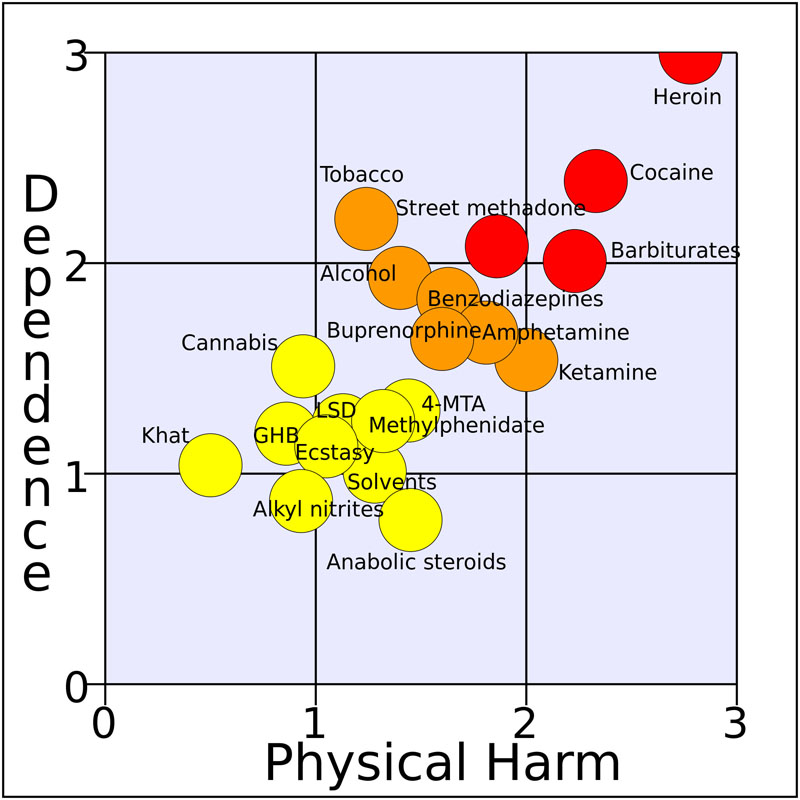Drugs and Consciousness
- A psychoactive drug is a chemical substance that changes brain function and results in alterations in perception, mood, or consciousness.
- Drug tolerance is a pharmacology concept where a subject's reaction to a specific drug and concentration of the drug is reduced followed repeated use, requiring an increase in concentration to achieve the desired effect.
- Drug withdrawal is the group of symptoms that occur upon the abrupt discontinuation or decrease in intake of medications or recreational drugs.

A rational scale to assess the harm of drugs. Data source is the March 24, 2007 article: Nutt, David, Leslie A King, William Saulsbury, Colin Blakemore. 'Development of a rational scale to assess the harm of drugs of potential misuse' The Lancet 2007; 369:1047-1053. (PMID 17382831; doi:10.1016/S0140-6736(07)60464-4) The data in the paper were obtained solely from questionnaire results obtained from two groups of people: the first comprised of people from the UK national group of consultant psychiatrists who were on the Royal College of Psychiatrists' register as specialists in addiction, while the second comprised of people with experience in one of the many areas of addiction, ranging from chemistry, pharmacology, and forensic science, through psychiatry and other medical specialties, including epidemiology, as well as the legal and police services.